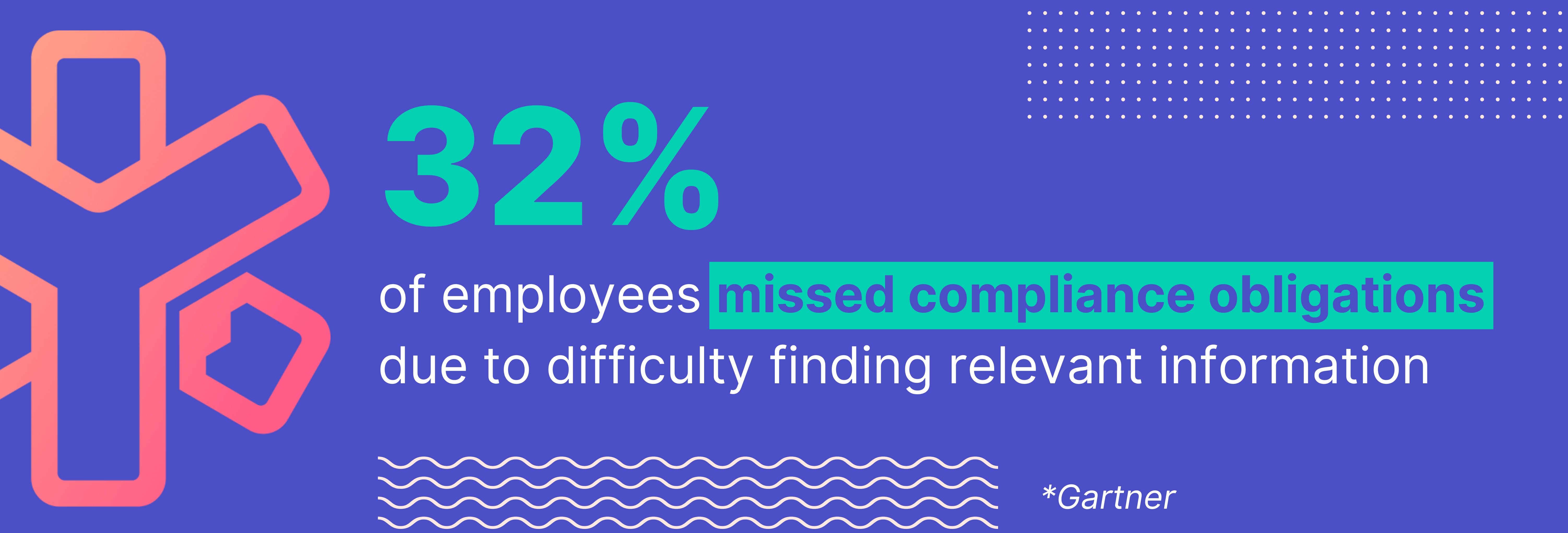Getting contractor compliance right is often complex, especially if your company hires globally. This guide aims to simplify the essentials, ensuring you meet the legal requirements wherever in the world you hire while effectively managing your freelance workforce.
What is contractor compliance?
Contractor compliance refers to adhering with legal and regulatory standards when hiring and working with independent contractors and freelancers. This applies to all workers who operate independently across various sectors and in different jurisdictions globally.
Ensuring compliance is complex as it mainly involves three elements, which are all complex within themselves:
- Correctly classifying workers
- Meeting tax obligations
- Adhering to employment laws
As rules around classification, tax and employment can vary significantly from one country to another businesses employing a global freelance workforce require a deep understanding of the regulations to avoid legal issues and penalties.
The difference between independent contractors and employees
The legal status of independent contractors is generally defined by their operational independence from the hiring company. Unlike employees who typically follow the employer's structured work environment, independent contractors operate under their own business entity, determine their work methods, and may have multiple clients. They are responsible for their own taxes and often carry their own business insurance. Because of their independent status, they are not covered under most employment protection laws, such as minimum wage or workplace safety regulations which are usually applicable to employees.
Recognising and respecting these distinctions is crucial for businesses to ensure legal compliance and to avoid the misclassification of workers, which can lead to significant legal liabilities.
Regulatory requirements for classifying contractors around the world
As mentioned above, regulatory requirements for classifying independent contractors vary significantly across different jurisdictions. To give you a better idea, here are some examples of compliance laws from around the world:
1. United Kingdom - IR35
IR35 is a tax legislation in the UK designed to combat tax avoidance by workers supplying their services to clients via an intermediary, such as a limited company, who would otherwise be an employee. The IR35 rules ensure that workers pay roughly the same tax and National Insurance contributions as employees.
Find out more about IR35 in our guide to getting contractor compliance in the UK right the first time.
2. United States - IRS Worker Classification
In the United States, the Internal Revenue Service (IRS) uses common law rules focusing on the degree of control and independence to determine whether a worker is an independent contractor or an employee. Form SS-8 can be filed by either the business or the worker to request a determination of the worker's status for purposes of federal employment taxes and income tax withholding.
The rules are also constantly changing. Find out more about the latest updates to worker classification in the US.
3. Canada - CRA Worker Classification
The Canada Revenue Agency (CRA) applies a similar test to the IRS to determine worker status. Their focus is also on the level of control the employer has over the worker's activities and how the worker is paid.
4. Australia - Superannuation Guarantee
In Australia, under Australian Tax Office rules even some contractors may be entitled to superannuation contributions under certain conditions. The distinction hinges largely on whether the contract is principally for labour and the degree of control exercised over how the work is performed.
5. European Union - A1 Portable Document
Within the EU, the A1 portable document is used to prove which social security legislation applies to a worker in cases where work is being done in multiple countries. This is especially important for determining where contributions to social security should be paid in the case of cross-border employment.
6. Germany - False Self-Employment
German law is particularly strict on the classification of employment to prevent what is termed 'false self-employment'. Freelancers must prove they do not work exclusively for one client, among other criteria, to maintain their status as independent contractors.
7. India - Provident Fund Regulations
Independent contractors in India do not typically receive benefits like Provident Fund contributions, which are mandated for traditional employees. However, companies must be careful with classification as the penalties for misclassification can be severe.
Understanding the misclassification rules in the countries in which you hire or plan to hire independent contractors is vital. However, you don’t have to manage it all yourself.

YunoJuno includes integrated compliance tools and automation so you can hire in over 150 countries safe in the knowledge that you’re complying with local employment laws. Find out more about global contractor compliance in YunoJuno.
"YunoJuno has reduced the time and admin spent on completing IR35 compliance for all of our freelancers. It's revolutionised how quickly we can hire someone, in a fully compliant way."
Emma Hughes, Senior Creative Producer, AO.com
The importance of compliance
Failure to comply can lead to substantial penalties, including fines, back payments, and legal fees. For instance, in the United States, misclassification of employees as independent contractors can result in penalties for non-payment of taxes and failure to provide employee benefits. In the European Union, similar misclassifications can lead to hefty fines and the payment of arrears in social security contributions.
To illustrate the complexities involved and how easily companies can encounter challenges, here are a few examples where compliance with independent contractor regulations has potentially gone wrong globally:
Examples of non-compliance from around the world
Nike - Global
Nike has recently come under scrutiny for potentially misclassifying a significant number of its workers as independent contractors rather than employees, a practice that could lead to more than $530 million in fines. This issue centres around the alleged incorrect classification of temporary office workers and other staff, which would deny them benefits such as paid leave, health insurance, and retirement contributions that they would be entitled to as employees.
The errors in classification at Nike are believed to stem from a lack of a systematic process for properly determining the employment status of its workers across different countries, including the US, UK, Netherlands, and Belgium. The misclassification risks were identified in a review that pointed out the absence of a company-wide standard for classifying workers correctly, which has likely exacerbated their compliance issues.
Uber - Global
Uber has faced numerous legal challenges across various countries regarding the classification of its drivers. Courts and government agencies in several jurisdictions, including the UK and California, have ruled that Uber drivers should be treated as employees rather than independent contractors. This classification requires Uber to offer benefits such as minimum wage, paid leave, and other employee rights, which significantly impacts their operating costs and business model.
Doordash - US
In 2022, DoorDash agreed to pay $5.3 million to settle allegations that it misclassified its delivery drivers as independent contractors in San Francisco. The settlement addressed claims that these workers were denied minimum wage, sick leave, and reimbursement for business expenses, which they would have been entitled to as employees under local labour laws.
Foodora - Australia
In 2020, the Fair Work Commission of Australia ruled that a Foodora bicycle delivery rider was an employee, not an independent contractor. This decision came after the rider was unfairly dismissed, challenging the widespread practice among gig economy companies of classifying delivery workers as independent contractors.
The ruling was significant because it highlighted the control Foodora had over the rider's work conditions, which resembled an employment relationship more than that of an independent contractor. This included wearing a uniform, using branded equipment, and adhering to specific work schedules set by Foodora.
Infosys - India and United States
Infosys, a global IT services company based in India, has faced multiple allegations and legal actions regarding its use of independent contractors and visa practices, particularly in the United States. The company has been scrutinised for potentially misclassifying workers to circumvent H-1B visa restrictions and labour laws, which would otherwise require more stringent compliance with employment standards and wage requirements.
Ryanair - Belgium
Ryanair, the Ireland-based airline, has faced numerous disputes over the employment conditions and classifications of its staff, particularly pilots and cabin crew based in countries other than Ireland. Belgian courts have ruled that Ryanair must adhere to local employment laws rather than those of Ireland, where the company is headquartered. This includes the classification of workers, which affects their rights and benefits under Belgian law.
HMRC - UK
On the other side of the law, in 2021 HMRC faced a setback when the tax tribunal ruled against it in a case involving the employment status of a contractor. The case involved Susan Winchester, a marketing consultant who was deemed to be wrongly classified under IR35 rules as an employee rather than a contractor. Winchester brought a claim against HMRC for missing employment benefits after her reclassification under IR35.
This case was notable because it turned the tables on HMRC, the very entity enforcing IR35 compliance. The tribunal's decision required HMRC to pay compensation for holiday pay due to the incorrect classification.
This case highlighted the complexities of IR35 legislation and served as a wake-up call to all employers, including public bodies, about the importance of accurate contractor classification. It emphasised that even HMRC could struggle with the nuances of the law, underlining the challenges businesses face in navigating IR35 compliance.

5 Steps to take to make contractor compliance at your business failsafe
To ensure compliant hiring practices for contractors, and avoid any legal disputes like those listed above, here are some steps you can take:
1. Craft clear contractor agreements
Draft comprehensive contracts that clearly define the relationship between the contractor and the company. These agreements should specify the scope of work, deadlines, payment terms, and expectations regarding the use of materials and tools. It's also important to outline the legal status of the contractor, emphasising their independence from the company's operations.
2. Conduct regular audits
Regular audits of contractor relationships and practices will ensure ongoing compliance with all applicable laws and regulations. This helps in identifying and rectifying any potential misclassifications or breaches in contractor agreements before they become more significant issues.
Training and Resources: Provide training for HR and procurement teams on the latest regulations and compliance requirements specific to hiring contractors. Keeping staff informed about changes in law and best practices can prevent costly compliance mistakes.
3. Consult legal experts
Engage with legal experts who specialise in employment and contractor law, especially those familiar with the jurisdictions where the company operates. This is particularly valuable for global companies dealing with varied and complex legal environments across different countries.
4. Define Clear Distinctions
Clearly distinguish between employees and contractors in company policies and day-to-day management. This includes not treating contractors like employees in terms of benefits, supervision, and inclusion in company functions that are typically reserved for employees.
By integrating these practices into their operational procedures, companies can better manage contractor engagements and mitigate risks associated with non-compliance. This proactive approach not only protects the company legally but also upholds its reputation and operational integrity.
5. Use the right technology
Use contractor management systems or software designed to help track and manage contractor engagements. These tools can aid in ensuring that contracts are up-to-date, payments are processed according to agreed terms, and all necessary documentation is maintained for legal and regulatory purposes.
The future of independent contractor compliance
Emerging trends and technologies are shaping the future of contractor compliance, highlighting the importance of adaptive strategies and proactive management. As regulations continue to evolve, especially with increasing scrutiny on gig economy models and cross-border employment, you can expect more stringent and detailed contractor classifications and compliance requirements.
The IT sector in particular is looking set to become more complicated. The rapid pace of technological change and the critical nature of data protection heighten the need for compliance. IT contractors often have access to sensitive corporate information, intellectual property, and personal data. Ensuring these contractors are properly classified helps maintain the integrity of data security protocols, such as those required under GDPR in the EU or the Sarbanes-Oxley Act in the U.S. The IT industry frequently employs workers on a project basis from a global talent pool, increasing the complexity of complying with international employment laws and data security regulations.
In these times of change it’s becoming increasingly important to have a reliable partner on hand to help keep independent contractor compliance simple.
How YunoJuno helps you to get compliance right first time
At YunoJuno we specialise in connecting businesses with freelancers globally while ensuring robust contractor compliance management. Our freelancer management system streamlines the process of hiring and managing freelancers by offering tools that ensure legal and financial compliance across various jurisdictions.
YunoJuno helps you to classify freelancers correctly, manage contracts, and ensure that all engagements comply with local employment laws and tax regulations. By using YunoJuno, you can mitigate the risks associated with contractor misclassification and non-compliance, enabling you to effectively manage a flexible workforce while adhering to regulatory requirements. Find out more about how YunoJuno helps you to manage contractors and freelancers compliantly.








